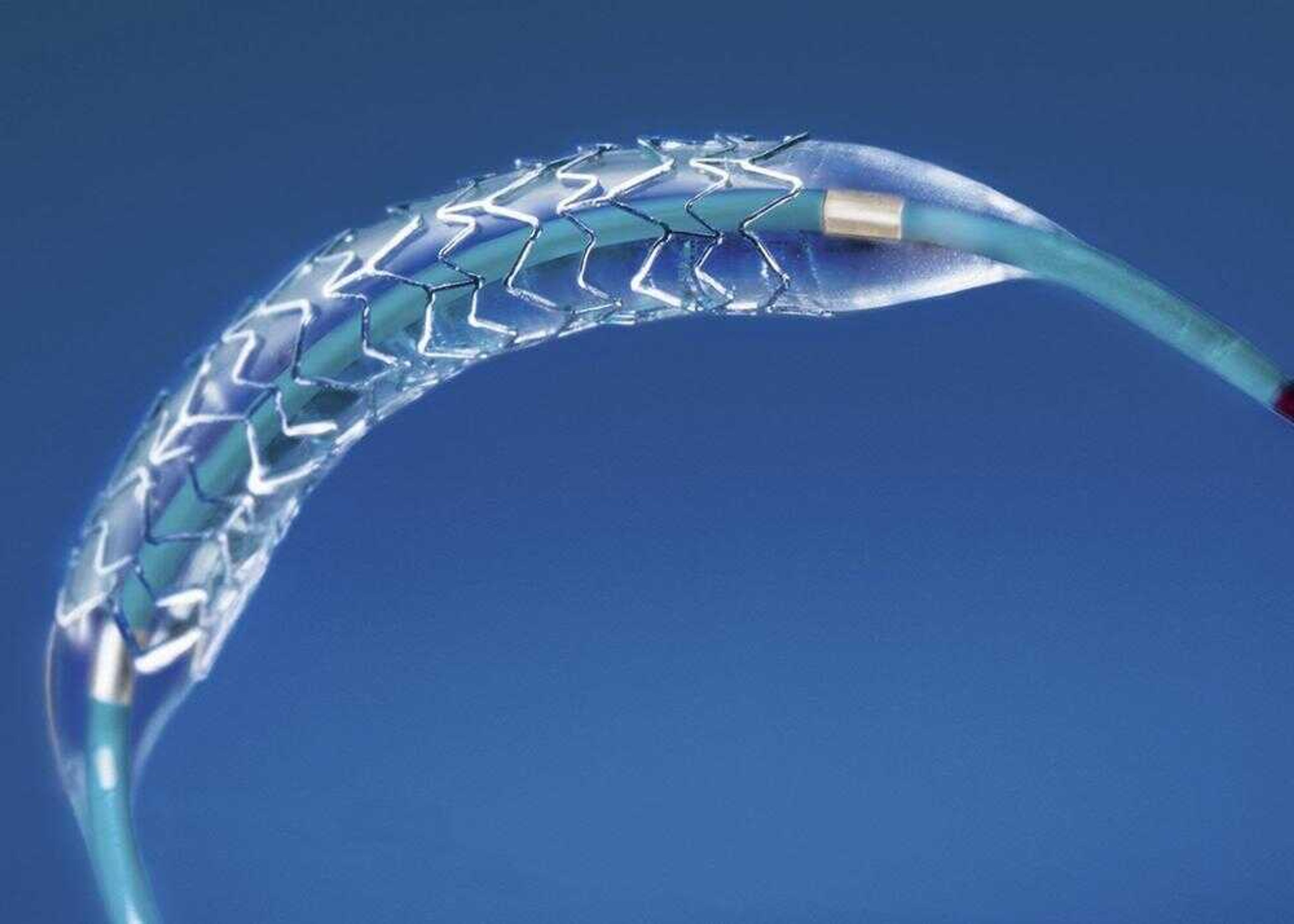New heart stents pass key tests, but long-term safety questions linger
NEW ORLEANS -- A new crop of experimental heart stents have passed some key safety and effectiveness tests and may one day offer alternatives to the controversial stents currently used to keep unclogged arteries open, doctors reported Saturday. One is designed to dissolve after doing its job, leaving nothing behind to trigger blood clots -- a worry with the most popular stents sold now. ...
NEW ORLEANS -- A new crop of experimental heart stents have passed some key safety and effectiveness tests and may one day offer alternatives to the controversial stents currently used to keep unclogged arteries open, doctors reported Saturday.
One is designed to dissolve after doing its job, leaving nothing behind to trigger blood clots -- a worry with the most popular stents sold now. Another attracts special cells to help the artery heal. A third is super-thin and uses a novel drug to keep scar tissue from reblocking the vessel.
All are seeking a slice of the $6 billion market for these tiny mesh scaffolds, which are placed in arteries during angioplasty, an artery-clearing procedure that more than a million Americans have each year.
Its popularity has faded with news that the drug-coated stents used in most of these procedures can raise the risk of blood clots many months later.
Two brands are sold in the United States: Taxus, by Boston Scientific Corp., and Cypher, by Johnson & Johnson's Cordis Corp.
At an American College of Cardiology meeting on Saturday, Dr. Gregg Stone of Columbia University said that Abbott Laboratories Inc.'s Xience stent proved "at least as safe and effective" and, by some measures, better than Taxus in a comparison study of 1,000 patients. Stone consults for both companies, and Abbott paid for the test.
"He doesn't have adequate data to tell us if it's safer," and no one knows whether the federal Food and Drug Administration will require that proof because of worries about existing stents, said Dr. Spencer King, an Atlanta heart specialist and past president of the cardiology group.
Xience's thin metal base is coated with a drug called everolimus to discourage scar tissue. It is already sold overseas; the new study is aimed at getting approval in the United States and Japan.
Doctors also gave results of the first human study in the world of a temporary stent, Absorb, also made by Abbott. It is designed to hold arteries open for about six months and then completely dissolve over the next two years or so.
No deaths, blood clots or repeat artery-opening procedures occurred among the first 30 patients to get it, and only one mild heart attack occurred in the first six months of use, said study leader Dr. Patrick Serruys of Erasmus University Medical Center in Rotterdam, the Netherlands.
Much more study is needed, but doctors say it would be a welcome alternative to current stents, which are permanent, foreign metal objects that can interfere with imaging tests increasingly used in heart care.
"The concept is extremely enticing," said Dr. Deepak Bhatt, a Cleveland Clinic cardiologist who had no role in the study.
On Sunday, Dr. Marcel Beijk of the University of Amsterdam will report what he termed "early encouraging early results" in 152 patients who received a stent called Genous, which is coated with a substance designed to attract stem cell-like cells from the bloodstream to help the artery heal.
In May, results are due on Cordis' experimental stent, CoStar. Its anti-clotting drug is contained in tiny wells designed to dissolve over time so that after about six months, the device turns into a plain metal stent.
Medtronic Inc. also is seeking FDA approval for its Endeavor stent, which it claims is less likely to cause artery inflammation problems.
"Technologies never stand still - they're constantly improving," said Dr. Elizabeth Nabel, director of the National Heart, Lung and Blood Institute.
Yet key questions remain about the safety of all of these devices. An expert panel led by Harvard cardiologist Dr. Eugene Braunwald is finalizing a report on what the federal agency's role should be in resolving the safety issues, Nabel said.
The group will recommend whether a new clinical trial, a registry to track patients or some other solution is needed, Nabel said.
Connect with the Southeast Missourian Newsroom:
For corrections to this story or other insights for the editor, click here. To submit a letter to the editor, click here. To learn about the Southeast Missourian’s AI Policy, click here.









